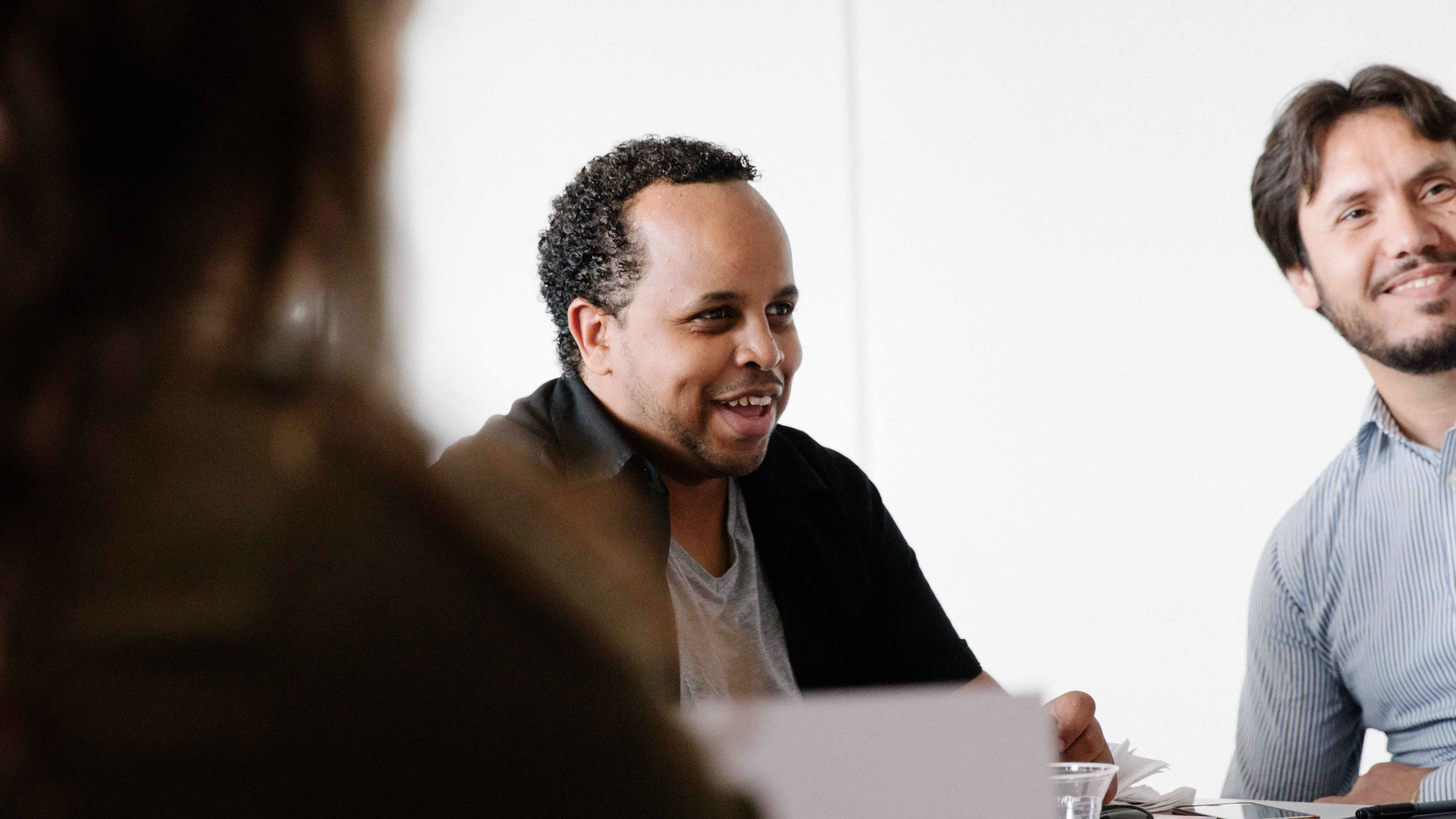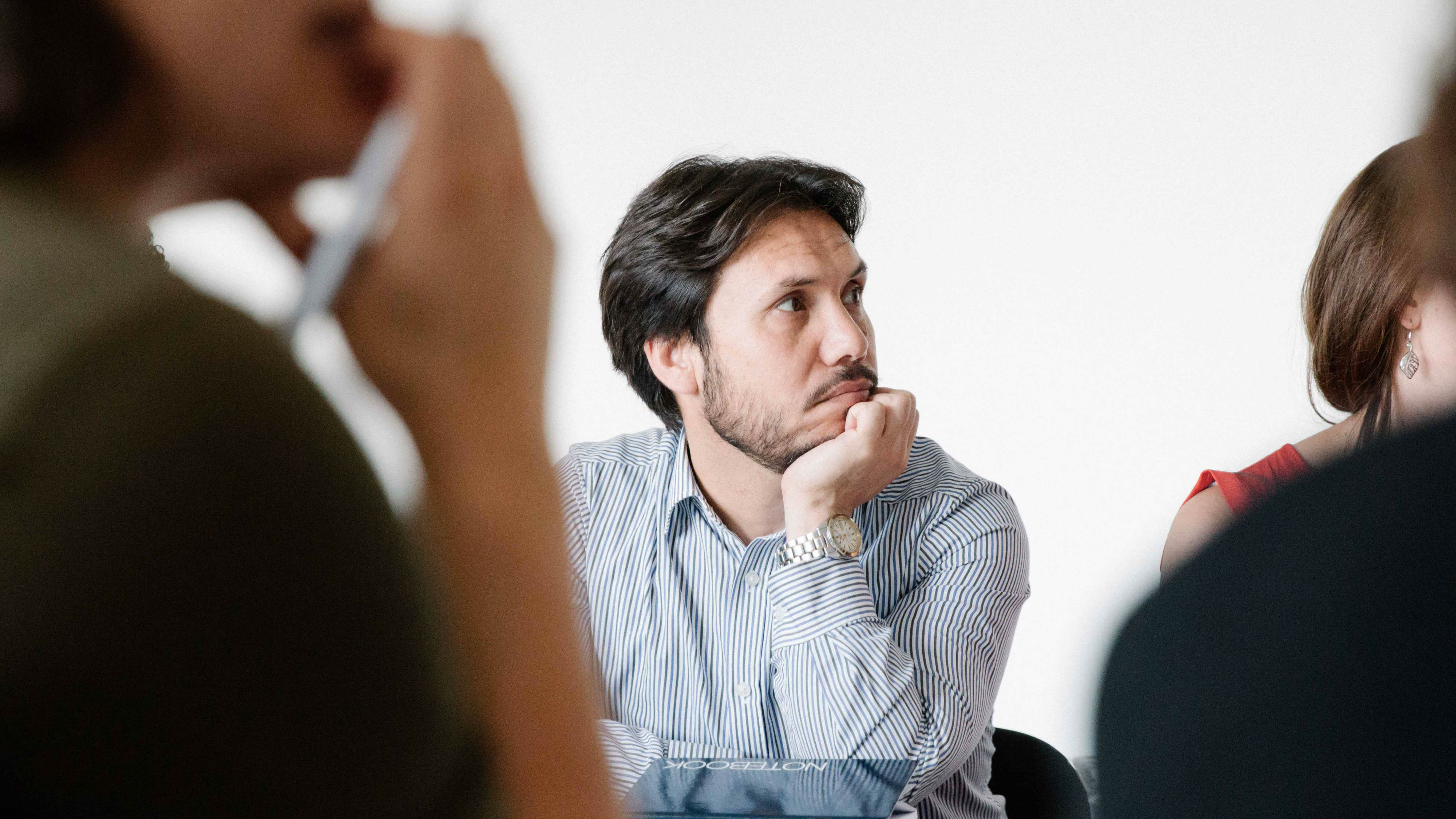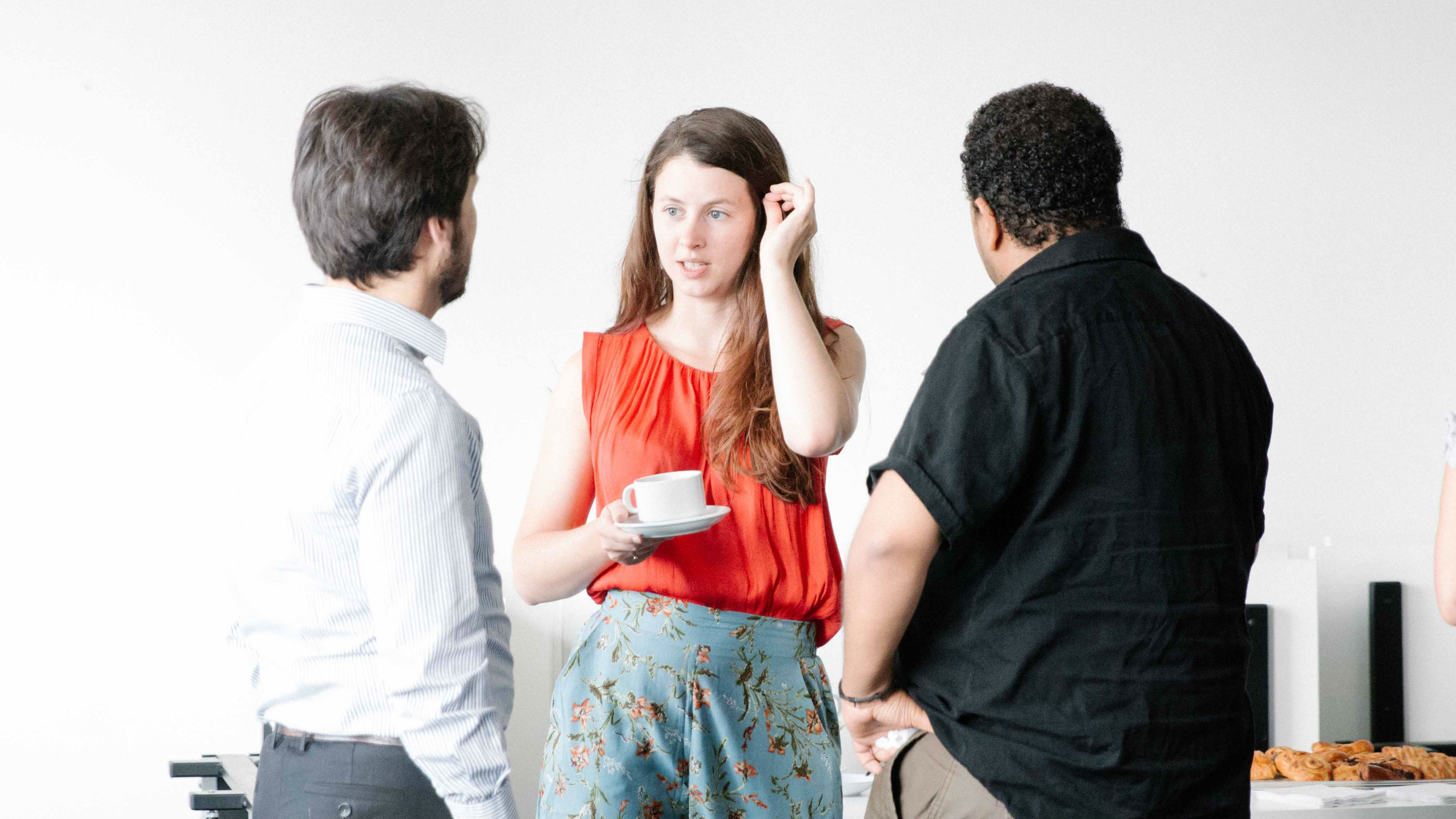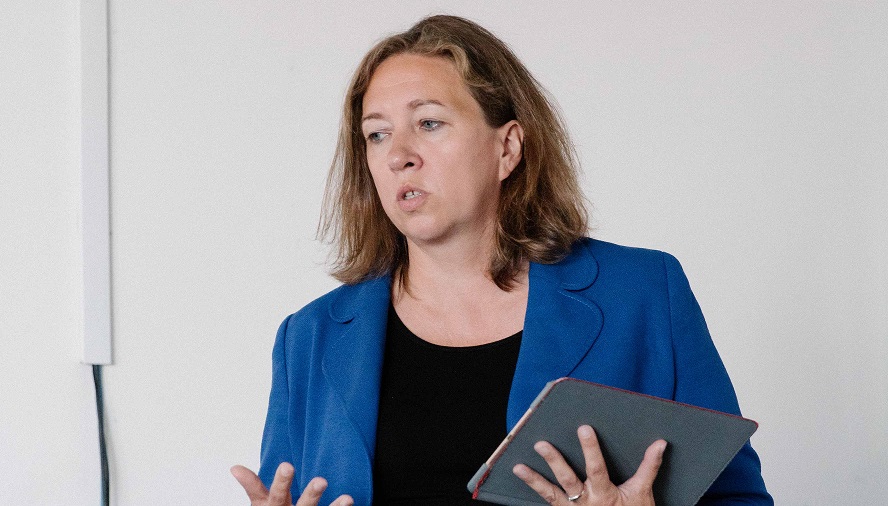Article - Tackling obstacles to integration through collaborative teaching
Images by Unai Mateo Lopez, London College of Communication
Higher Education partners from coLAB gathered in London for the first stage of an initiative that seeks to break down some of the integration barriers encountered by refugees in local communities. Working in paid roles as tutors or teachers, those who have faced displacement will be invited to share their expertise with university students by delivering workshops and lectures in a range of subject areas.
 At the two-day event, hosted in the UK by London College of Communication, UAL, the partners - from Belgium, France, Italy and the United Kingdom - discussed how the activities would be designed, delivered and evaluated over the 18-month cycle of the project.
At the two-day event, hosted in the UK by London College of Communication, UAL, the partners - from Belgium, France, Italy and the United Kingdom - discussed how the activities would be designed, delivered and evaluated over the 18-month cycle of the project.
The project is currently in the recruitment phase, so partners are in the process of advertising the opportunity to potential participants via charities, NGOs and local refugee communities. The aim is for the incoming tutors to be ready to deliver sessions in the 2018/19 academic year.
As the focal point of coLAB is to improve relations between local communities and refugees, central to the conversations at this first partnership meeting was the perspective of those with first-hand experience of attempting to rebuild their lives in new countries. Zabihullah Noori and Temesghen Debasi - both journalists who had come to the UK seeking refuge from persecution - shared their thoughts on integration.
 Back in Eritrea, Mr Debasi had been a successful broadcaster and co-founder of the first English-speaking news station. Commenting on the challenges he faced when attempting to continue his professional life in the UK, he said: “Time and again, it's been said that it's not what you know, but who you know that matters. Refugees find it difficult to create networks that could help them pursue whatever career they had prior to arriving in Europe. I believe such initiatives (coLAB) will have amazing knock-on effects in terms of helping the refugees become an integral part of their societies.”
Back in Eritrea, Mr Debasi had been a successful broadcaster and co-founder of the first English-speaking news station. Commenting on the challenges he faced when attempting to continue his professional life in the UK, he said: “Time and again, it's been said that it's not what you know, but who you know that matters. Refugees find it difficult to create networks that could help them pursue whatever career they had prior to arriving in Europe. I believe such initiatives (coLAB) will have amazing knock-on effects in terms of helping the refugees become an integral part of their societies.”
 Originally from Afghanistan, Mr Noori felt that focusing on young people at universities was essential as it could help demystify their perception of who a refugee was. “The project could help build understanding in terms of our reputation and social status back home, and can make students understand the refugee’s situation in a broader context. With better understanding about refugees, students can open up to them and that in turn will speed up the integration process for refugees, which can lead to a more harmonious society.”
Originally from Afghanistan, Mr Noori felt that focusing on young people at universities was essential as it could help demystify their perception of who a refugee was. “The project could help build understanding in terms of our reputation and social status back home, and can make students understand the refugee’s situation in a broader context. With better understanding about refugees, students can open up to them and that in turn will speed up the integration process for refugees, which can lead to a more harmonious society.”
Both Mr Noori and Mr Debasi expressed their frustration at the lengthy, complex process of gaining the right to work in Europe faced by those claiming asylum. In the UK, like most European countries, it can take to anything from a couple of months to several years to get permission from the government to do either paid or voluntary work.
Added to this, having spent many years advancing in their profession, both said that being in a new country that often does not value your experience and knowledge, can make you feel worthlessness.
 The group also heard from Imogen Pursch who works for Breaking Barriers, a UK-based charity that supports refugees into professional roles. She was able to offer contextual information and advice on how employment law and social security rights might impact the partners’ decision-making when hiring participants.
The group also heard from Imogen Pursch who works for Breaking Barriers, a UK-based charity that supports refugees into professional roles. She was able to offer contextual information and advice on how employment law and social security rights might impact the partners’ decision-making when hiring participants.
Ms Pursch also made the strong suggestion that the universities should consult with employment or benefits experts regarding the precise details of the employment contract, “…otherwise the refugees could end up being financially worse off having participated in the project”.
coLAB is a project funded by the European Union/Council of Europe Joint Programme Democratic and Inclusive School Culture in Operation (DISCO). Launched in May 2013, the programme provides financial support for projects within the field of education for democratic citizenship and human rights education.
 At the London coLAB meeting Katia Dolgova-Dreyer, Programme Coordinator from the Council of Europe, said: “They want to integrate refugees in a way that is not just having them as students, or people who they want to make learn something, but actually involve them as teachers at universities, so we find that is very, very innovative, it is interesting and could be a best practice. As the Council of Europe, we are very proud to be behind this initiative.”
At the London coLAB meeting Katia Dolgova-Dreyer, Programme Coordinator from the Council of Europe, said: “They want to integrate refugees in a way that is not just having them as students, or people who they want to make learn something, but actually involve them as teachers at universities, so we find that is very, very innovative, it is interesting and could be a best practice. As the Council of Europe, we are very proud to be behind this initiative.”
In London, the teaching opportunities will be created in a number of courses including MA User Experience Design, BA (Hons) Journalism, MA Photojournalism and Documentary Photography, and Diploma in Professional Studies. Incoming tutors will receive an induction to teaching at UAL, then work with course teams to design and deliver the sessions. At the end of the project, they will gain advice on the next stages in their teaching careers.
Natalie Brett, Head of London College of Communication and UAL Pro Vice Chancellor said: “London College of Communication is very proud to be part of this European project as it aligns with our core institutional values in celebrating diverse communities and collaboration. We are a truly international community of staff and students that aims to be bold and experimental in our approaches to learning and teaching. Through the intercultural exchange opportunities we are creating as part of coLAB, we can facilitate genuine and deep engagement within our subject areas and make a positive social impact.”
The coLAB partnering universities are:
- Institut des Hautes Etudes des Communications Sociales (IHECS – Brussels, Belgium)
- University of the Arts London, London College of Communication (UAL-LCC – London, UK)
- Université Clermont Auvergne (UCA – Clermont-Ferrand, France)
- Libera Università Maria Ss. Assunta (LUMSA – Rome, Italy)
- IHECS Academy (Brussels, Belgium)
The next coLAB meeting will take place in Rome in September 2018.
VIDEO
Katia Dolgova Dreyer, Programme Coordinator, Education Department, Council of Europe
*This article was drafted by CoLAB project partners. The opinions expressed in this article are the responsibility of the authors and do not necessarily reflect the official policy of the Council of Europe or the European Union.
